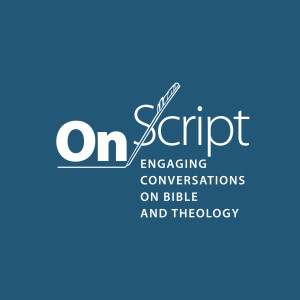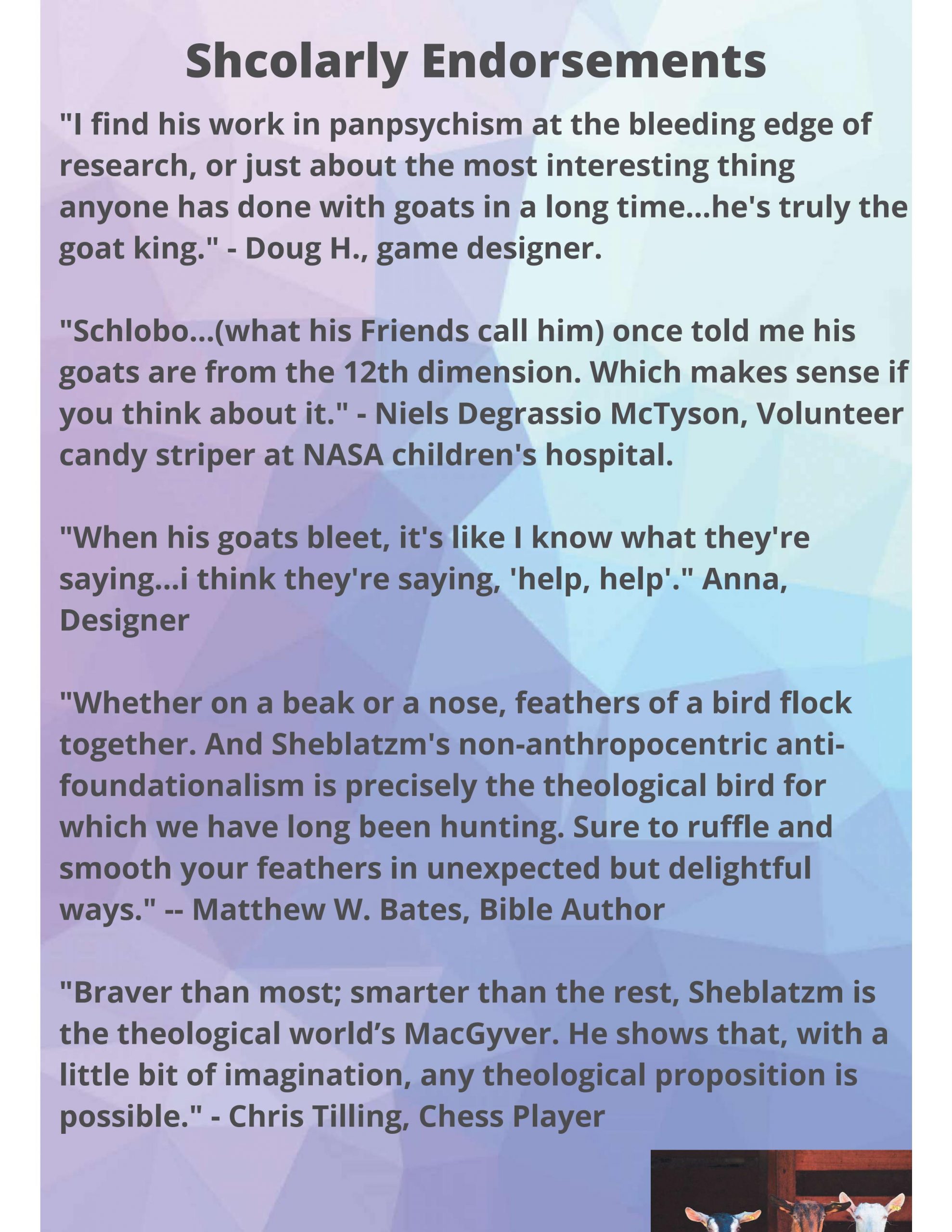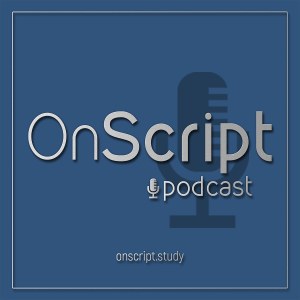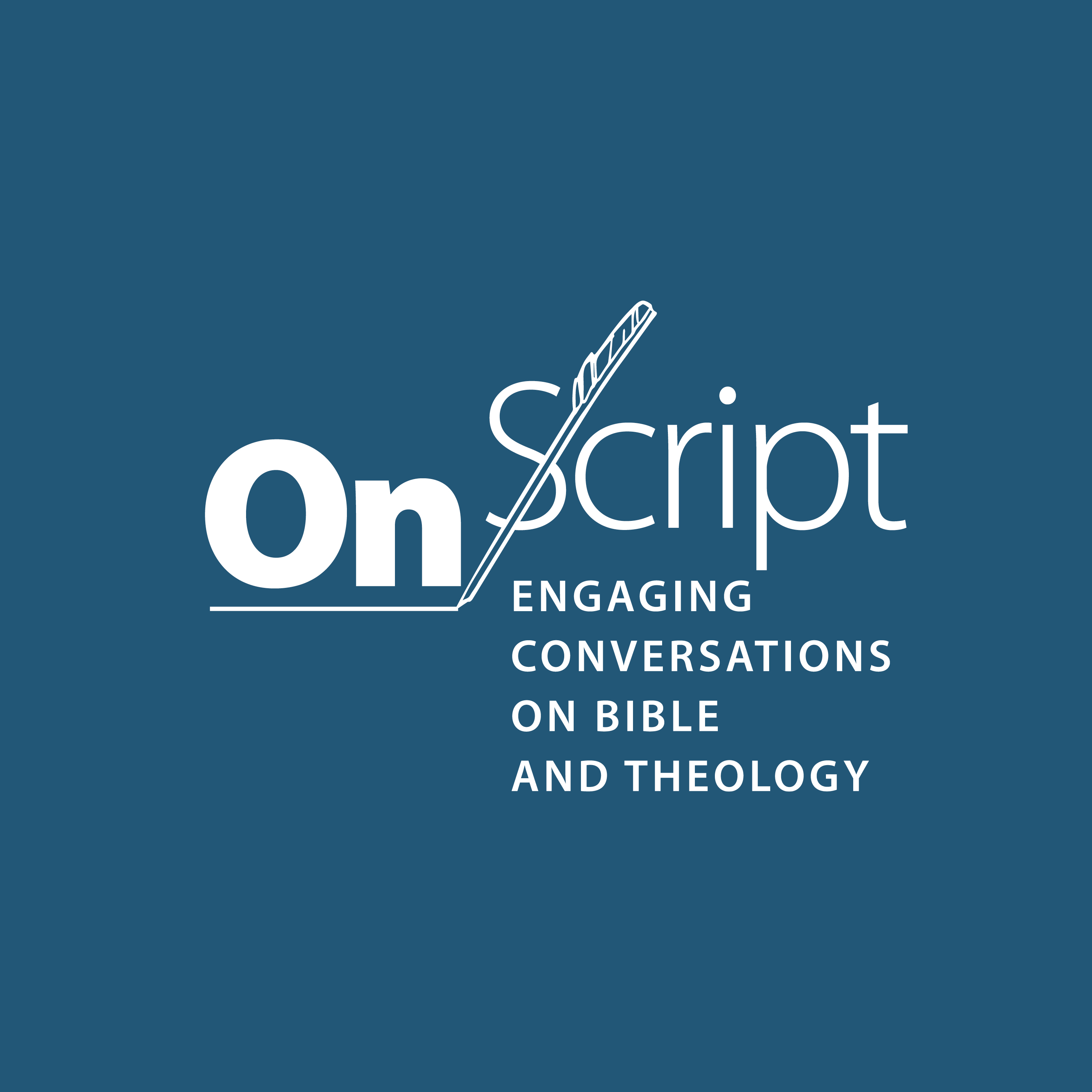Episodes

Tuesday Apr 21, 2020
Christian Hofreiter - Making Sense of Old Testament Genocide
Tuesday Apr 21, 2020
Tuesday Apr 21, 2020
Episode: In this re-run of a 2018 episode, Matt Lynch interviews Christian Hofreiter (RZIM) on one of the most vexed issues in biblical studies ... genocide in the Old Testament. Christian Hofreiter has been pondering this question for a long time, and has written a groundbreaking work on the subject - Making Sense of Old Testament Genocide: Christian Interpretations of Herem Passages (Oxford University Press, 2018).
Guest: (from the RZIM site) The Revd Dr Christian Hofreiter is Director of RZIM Austria, Germany and Switzerland, the Zacharias Institut für Wissenschaft, Kultur und Glaube, a Research Fellow at the Oxford Centre for Christian Apologetics, and, most recently, the author of Making Sense of Old Testament Genocide: Christian Interpretations of Herem Passages (Oxford University Press, 2018). A native of Austria, he has studied, lived and worked in Innsbruck, Brussels, London, Los Angeles, Washington, DC, and Oxford, and now lives with his family in Vienna, Austria.
From 2008-2012, Christian served with the Oxford Pastorate as a chaplain to the graduate student body at Oxford University, working closely with senior academics, leaders of various churches, and a broad variety of students. An ordained Anglican minister, he was also a member of the leadership team at St Aldates Church, Oxford.
In addition, Christian studied theology at Oxford University, earning three degrees (MA, MSt, DPhil), winning several prizes and scholarships, and gaining the top first class award in 2008. His doctoral research focused on the Christian interpretation of “genocide texts” in the Old Testament.
Before arriving in Oxford, Christian worked in a government relations firm in Washington, DC, which represented the interests of foreign governments and other clients to the United States Congress and Administration, and also served as deacon at the Church of the Resurrection on Capitol Hill.
Book: Making Sense of Old Testament Genocide: Christian Interpretations of Herem Passages (Oxford University Press, 2018) takes an historical look at how Christians through the centuries have addressed, wrestled with, and re-interpreted the 'herem' passages in the Old Testament. Herem is the practice of devoting people or objects to destruction (or removing them from use) at the behest of a deity. Hofreiter provides a critically rich and illuminating tour of the history of Christian engagement with these challenging biblical passages. ***For a 30% discount on the book, use the promo code AAFLYG6 on the global website (oup.com)***
Give: Visit our Donate Page if you want to join the big leagues and become a regular donor.

Monday Apr 06, 2020
Fleming Rutledge – A Fireside Chat on The Crucifixion, Advent, and Preaching
Monday Apr 06, 2020
Monday Apr 06, 2020
 Episode: In this episode, Erin hosts Fleming Rutledge for a fireside chat before a live audience at Wycliffe Hall, University of Oxford. Listen as Fleming shares pearls of wisdom from her decades of ministry as a preacher and a writer.
Episode: In this episode, Erin hosts Fleming Rutledge for a fireside chat before a live audience at Wycliffe Hall, University of Oxford. Listen as Fleming shares pearls of wisdom from her decades of ministry as a preacher and a writer.
Guest: Fleming Rutledge was ordained to the diaconate in the Episcopal church in 1975, and was one of the first women to be ordained to the priesthood of the Episcopal Church in January 1977. She holds an MDiv from Union Theological Seminary, and has been awarded two honorary Doctor of Divinity degrees, from Virginia Theological Seminary and Wycliffe College in the University of Toronto. Since then she has had a lengthy career in ministry (she served in parish ministry for 19 years), and as an author, speaker, and teacher of other preachers. She has twice been a Fellow in residence at Princeton Seminary’s Center of Theological Inquiry, and she is invited regularly to preach in prominent pulpits in the United States and abroad.
Rutledge is the author of numerous books, including Advent: The Once and Future Coming of Jesus (Eerdmans, 2018) Christ (her self-professed favourite), and The Crucifixion: Understanding the Death of Jesus Christ (Eerdmans, 2015), which was the winner of Christianity Today’s book of the year award in 2017.
In his forward to her first book, The Bible and the New York Times (Eerdmans, 1998), William Willimon remarks that Fleming Rutledge, “does not want just to speak to our world; she wants to change it. She wants to reorder our time, to reconfigure our year into the church’s year of grace…Is this preacher conservative? Feminist? Evangelical? Liturgical? Fleming Rutledge challenges our conventional labels. I believe the word for which we’re groping to describe her is Biblical.”

Tuesday Mar 31, 2020
Tuesday Mar 31, 2020
Episode: Triple-crown episode!! Sheblatzm is back for the 3rd time, and he's not holding back. This episode will revolutionalize the way you think about theology, science, and yourself. But it's not all pie-in-the-sky theologizing here. No way. Through accessible communication Sheblazm tells heart-wrenching but ultimately heart-warming stories of life on the front lines of science and theology where the anthropic and non-anthropic meet and merge. Sheblatzm's latest work continues right where St. Francis left off.

Guest: Professor Dr. Ervine Sheblatzm is a self-proclaimed scientist and theologian who allegedly runs a "centre of excellence" and farmstead in England's beautiful lake district. As he puts it, his work is "not just ground-breaking; it's ground re-defining." He works at his "centre of excellence" with his friend Dave. Ervine Sheblazm is the author of Paul, Multiverse Theory , and the Journey of the Inner Soul (2018), Faultlines in the Horizon: Paul's Dawning Age Marches On (2019), and most recently, Feathers on the Nose: Paul's Radical Pastoral Theology for the Non-Anthropic World (2020).
Endorsements: Read what the experts have to say!


Tuesday Mar 17, 2020
Ian McFarland - The Word Made Flesh
Tuesday Mar 17, 2020
Tuesday Mar 17, 2020
Episode: Has the Chalcedonian Definition stood the test of time and theological challenge? Ian McFarland thinks so and advocates for a "Chalcedonianism without reserve" in his newest book, The Word Made Flesh: A Theology of the Incarnation (WJK, 2019). McFarland joins co-host Amy Hughes to talk about what he means by this phrase and how churches who affirm the language laid out at the Council of Chalcedon in 451 (Catholic, Protestant, and most Orthodox traditions) don't always follow through on the implications. What is the disconnect here and why does it matter? Spoiler alert: It has something to do with the gospel...
Guest: Dr. Ian A. McFarland currently serves as Robert W. Woodruff Chair of Theology at Emory University's Candler School of Theology, where he returned after four years as Regius Professor of Divinity at the University of Cambridge. He had previously been on the Candler faculty from 2005–2015 and before that taught at the University of Aberdeen. Professor McFarland's research has focused on Christology, theological anthropology, and the doctrine of creation. His interests also include the use of the Bible in theology, the relationship between theology and science, and the thought of Maximus the Confessor. He is the sole author of six books, including The Word Made Flesh: A Theology of the Incarnation (2019) and From Nothing: A Theology of Creation (2014); he also served as lead editor for the Cambridge Dictionary of Christian Theology (2010).

Monday Mar 09, 2020
Wave Nunnally - Israel, Lynyrd Skynyrd, and the Dead Sea Scrolls
Monday Mar 09, 2020
Monday Mar 09, 2020
Episode: This episode takes you on a wild ride through the land of the Bible, the world of Josephus, into the ER after crashed planes, by the Dead Sea, and includes encounters with Lynyrd Skynyrd, ZZ Top, and a fire-breathing dragon. Brace yourself!
Guest: Dr. Wave Nunnally is Professor of Early Judaism and Christian Origins at Evangel University in Springfiled, MO. He is the author of numerous articles and books, including The Book of Acts and Knowing Your Bible. He leads regular study trips to Israel, which include training materials (see The Bible Unplugged) on-site teaching, and follow-up coaching. More of Wave's material can be found at http://centralfaithbuilders.com/.
Give: Help support OnScript as we grow and develop. Click HERE.

Monday Mar 02, 2020
Jeanette Hagen Pifer - Faith as Participation
Monday Mar 02, 2020
Monday Mar 02, 2020
Episode: In this third episode of a mini-series on "faith" (pistis), Jeanette Hagen Pifer brings a different method to bear on pistis, looking at what we might glean from wider conceptual categories related to "faith," like persuasion and boasting. And she was a missionary in the former Soviet Union before becoming a professor! Join her and OnScript co-host Matthew W. Bates, as they discuss Jeanette's new book, Faith as Participation.
Guest: Jeanette Hagen Pifer is Assistant Professor of New Testament at Biola University She has served in a variety of ministry capacities including evangelistic and humanitarian work with orphans in the former Soviet Union, helping to facilitate for theological and ministry training around the world, and serving in a church plant in Whittier, Calif. She completed her Ph.D., studying under Professor John Barclay at Durham University. Her research focused on the Pauline concept of faith. Hagen has presented academic papers at a number of conferences in the U.S. and in Europe. She also contributed to the Lightfoot Legacy, a three volume set of previously unpublished commentaries by this foremost English NT scholar of the 19th century. Prior to coming to Biola, Hagen taught at Cranmer Hall in Durham England, a theological college focused on training individuals called to full-time Christian service.
The Book: Jeanette Hagen Pifer, Faith as Participation: An Exegetical Study of Some Key Pauline Texts (WUNT 486; Mohr Siebeck, 2019). Jeanette Hagen Pifer contends that several of the apparent conundrums in recent Pauline scholarship turn out to derive from an inadequate understanding of what Paul means by faith. By first exploring the question of what Paul means by faith outside of the classic justification passages in Romans and Galatians, she reveals faith as an active and productive mode of human existence. Yet this existence is not a form of human self-achievement. On the contrary, faith is precisely the denial of self-effort and a dependence upon the prior gracious work of Christ. In this way, faith is self-negating and self-involving participation in the Christ-event. (Publisher’s description, abridged).
Give: Help support OnScript as we grow and develop. Click HERE.

Monday Feb 24, 2020
Nijay Gupta - Paul and the Language of Faith
Monday Feb 24, 2020
Monday Feb 24, 2020
Episode: After years of relative silence, conversations about "faith" (pistis) in the New Testament and early Christianity are suddenly blossoming. Pistis is essential. But because it's multifaceted and can be used in so many contexts, Nijay Gupta compares it to a Swiss Army knife. OnScript co-host Matthew Bates welcomes guest Nijay Gupta to speak about Nijay's exciting new book, Paul and the Language of Faith.
Guests: Nijay K. Gupta (PhD, Durham) teaches New Testament at Portland Seminary (Portland, OR). He has written academic articles and books, most recently Paul and the Language of Faith (Eerdmans, 2020). He is also co-editor of The State of New Testament Studies (Baker Academic, 2019) and co-editor of the planned second edition of the Dictionary of Paul and His Letters (IVP Academic, ~2022). Watch out for his soon-to-appear A Beginner's Guide to the New Testament (Baker Academic, 2020). Gupta blogs at www.cruxsolablog.com. When he is not working, he likes to cook Asian food, watch superhero movies, drink good coffee, go to a Portland Timbers soccer game, and hang out with his wife Amy and his three kids.
The Book: Nijay Gupta, Paul and the Language of Faith (Eerdmans, 2020). A dynamic reading of Paul’s faith language, outlining its subtle nuances as belief, trust, and faithfulness. Faith language permeates the letters of Paul. Yet, its exact meaning is not always clear. Many today, reflecting centuries of interpretation, consider belief in Jesus to be a passive act. In this important book, Nijay Gupta challenges common assumptions in the interpretation of Paul and calls for a reexamination of Paul’s faith language. Gupta argues that Paul’s faith language resonates with a Jewish understanding of covenant involving goodwill, trust, and expectation. Paul’s understanding of faith involves the transformation of one’s perception of God and the world through Christ, relational dependence on Christ, as well as active loyalty to Christ. Pastors and scholars alike will benefit from this close examination of Paul’s understanding and use of faith language. For Gupta, Paul’s understanding involves a divine-human relationship centered on Christ that believes, trusts, and obeys. (Publisher’s description, unabridged).
The OnScript Quip (our review): This book should excite scholars and pastors. Gupta reveals the full spectrum of "faith" language in early Christianity. It is an exciting exposition of how faith language interfaces with loyalty, covenant, cognition—and much more. Our understanding of early Christian theology has been enriched. — Matthew W. Bates, author of Gospel Allegiance, OnScript
Give: Help support OnScript as we grow and develop. Click HERE.

Monday Feb 17, 2020
James Diamond - Jewish Theology Unbound
Monday Feb 17, 2020
Monday Feb 17, 2020
Episode: Dru Johnson speaks with James Diamond about why Jewish theology matters, and how he understands themes like love, death, freedom, names of God, angels, the philosophical quest, and Zionism in light of the Hebrew Bible and the Jewish Rabbinic, philosophical, and mystical traditions. This episode focuses on his book Jewish Theology Unbound (OUP).
Guest: Professor James A. Diamond is the Joseph and Wolf Lebovic Chair of Jewish Studies at the University of Waterloo. He holds a Ph.D. in Religious Studies and Medieval Jewish Thought from the University of Toronto, and an LL.M. from New York University’s Law School. He is also a Herzl Institute/Templeton Foundation Fellow. Dr. Diamond is the author of Maimonides and the Hermeneutics of Concealment (SUNY, 2002) which was awarded the Canadian Jewish Book Award and Converts, Heretics and Lepers: Maimonides and the Outsider (University of Notre Dame, 2008), awarded Notable Selection-Jordan Schnitzer Book Award in the Category of Philosophy and Jewish Thought for best book in 4 years (2008). His book Maimonides and the Shaping of the Jewish Canon (Cambridge, 2014) was a recipient of the Canadian Jewish Literary Award and his most recent book is JewishTheology Unbound (OUP).
Give: Help support OnScript as we grow and develop. Click HERE.

Monday Feb 10, 2020
Daniel Pioske - How Did Biblical Writers Access The Past?
Monday Feb 10, 2020
Monday Feb 10, 2020
Episode: In this episode Matt Lynch sits down with Dan Pioske to talk about the way we know about ancient Israel. Most scholars have been so text-based in their assumptions about memory transmission in the ancient world. They assume that texts & docs were the main way knowledge was preserved. Pioske suggests that there's another major way knowledge transmits--through the land. This episode explores the way that the land retains memory and provided biblical writers with a window on the past. We also discuss growing up in Minnesota, archaeology, the Philistines, David's Jerusalem, and much more!
Guest: Dan Pioske grew up on a family farm in southern Minnesota and attended Gustavus Adolphus college. After graduating, he moved east to Princeton Theological Seminary where he received his M.Div. 2007 and his Ph.D. in Biblical Studies in 2012. He taught for two years at Union Theological Seminary, New York, as a Post-Doctoral Fellow and Instructor in Biblical Languages, and he is currently an Assistant Professor of Religious Studies at Georgia Southern University. He's the author of David’s Jerusalem: Between Memory and History (2015) and Memory in a Time of Prose: Studies in Epistemology, Hebrew Scribalism, and the Biblical Past (2018). He lives in Savannah, Ga, with his wife Suzette and daughters Eve and Esther.
Give: Help support OnScript as we grow and develop. Click HERE.

Monday Jan 27, 2020
David Downs & Benjamin Lappenga - The Faithfulness of the Risen Christ
Monday Jan 27, 2020
Monday Jan 27, 2020
Episode: Jesus was faithful to us in dying on the cross. But how does this inform faith? And does Jesus' faithfulness stop at the cross, or does it extend into his on-going life as the resurrected and exalted one? What might all of this say about the disputed pistis Christou phrase? And did you know that in addition to coauthoring a book, David Downs and Benjamin Lappenga have run a marathon? Or that Lappenga fronted a Seattle rock band? OnScript co-hosts Matthew Bates and Erin Heim welcome guests David Downs and Benjamin Lappenga to speak about their new book, The Faithfulness of the Risen Christ.
Guests: Dr. David J. Downs is Clarendon-Laing Associate Professor in New Testament Studies at Oxford University’s Keble College. Previously he was a professor of Biblical Studies at Fuller Theological Seminary. He holds degrees from Clemson, Fuller, and Princeton, having served as a teaching fellow at Princeton and a visiting professor at Holy Cross. In addition to the book we are discussing today, The Faithfulness of the Risen Christ (Baylor University Press, 2019), David has also published Alms (Baylor University Press, 2016) and The Offering of the Gentiles (Mohr Siebeck, 2008; repr. Eerdmans, 2016), as well as numerous journal articles.
Dr. Benjamin Lappenga holds a PhD. From Fuller Seminary in theology (New Testament). He was previously Associate Professor of Theology and Department Chair at Dordt College near Sioux City, Iowa. He is also the author of Paul’s Language of Ζῆλος: Monosemy and the Rhetoric of Identity and Practice (Leiden: Brill, 2016).
The Book: David J. Downs and Benjamin J. Lappenga, The Faithfulness of the Risen Christ: Pistis and the Exalted Lord in the Pauline Letters (Baylor University Press, 2019). The pistis Christou construction in Paul’s letters has ignited heated debates among Pauline scholars and theologians. On the one side, some claim that the phrase denotes human faith placed in Christ. Others, however, contend that pistis Christou in Paul alludes to the faithfulness of Christ himself, with Christ’s pistis chiefly demonstrated in his willingness to suffer and die upon the cross. Yet both sides of this debate overlook Paul’s emphasis on the faithfulness and continuing work of the risen and exalted Christ. Downs and Lappenga effectively reframe any future consideration of the pistis Christou construction for both New Testament scholars and theologians by showing that the story of Jesus in the letters of Paul extends to the faithfulness of the exalted Christ Jesus, who will remain faithful to those justified through union with Christ. (Publisher’s description, abridged).
The OnScript Quip (our review): Downs and Lappenga open the shutters and remove the blinds. Once we see the that "the faith of Christ" includes the faithfulness of the risen and exalted Christ, Paul's letters will never look the same. The Faithfulness of the Risen Christ is an enlightening and energetic contribution that is sure to reshape academic and pastoral conversations about how "faith" and "faithfulness" interface in salvation. — Matthew W. Bates, Quincy University, OnScript
Give: Help support OnScript as we grow and develop. Click HERE.

